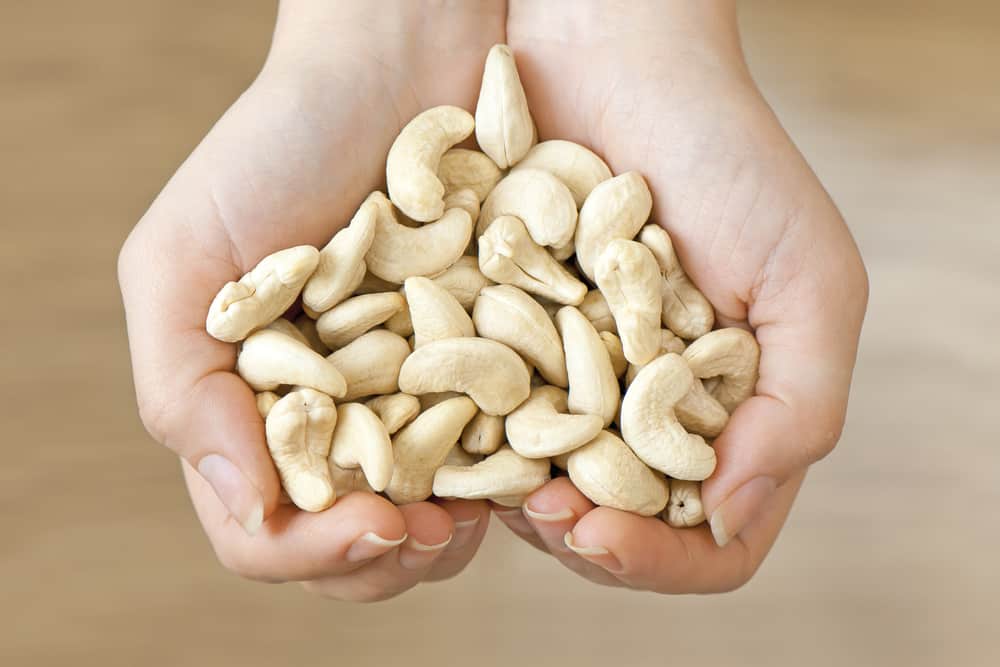
Here. Seriously thoug, if you’re looking to buy cashews, your first instinct is likely to run to your local grocery store and pick from whatever options they have in stock. However, while that’s the easiest thing to think of, there are a few things to keep in mind when buying cashews from a grocery store instead of from a fair-trade company like Beyond the Nut.
Raw cashews are assigned a grade based on a number of factors. Primarily, however, they are graded on size. The larger the cashew, the lower the grade. The price is also higher. In most cases, the nuts you buy are W-450 or W-320. These are on the smaller side, but they’re highly available and taste great. Jumbo cashews are graded as W-210, while W-180 is the largest size. These large “King of Cashews” are also the most expensive.
However, the cashews you find for sale in grocery stores are often not marked with a grade. You may see some packaged as “jumbo” cashews, but that doesn’t necessarily mean they are truly W-210 grade. Some cans of cashews may not even be W-450. Instead, the can may be full of cashew halves and other small pieces.
Does it matter? Yes and no. While all cashews do taste good and provide health benefits, you don’t want to pay more than you have to. If you’re paying more for cashews that are marketed as “jumbo size,” you should be getting the correct grade of nut.
Beyond the Nut very carefully only deals with fair trade cashew sources. Our cashews are grown and processed by local tradespeople in West Africa. That’s not the case with many other companies. The process of preparing cashews for consumption isn’t easy. First, the cashew itself is encased in something called a drupe. This fruit not only includes the cashew but also acids and toxins, one of which is similar to what makes poison ivy so irritable to the skin. Farmers must very carefully pick and then dry out the drupe in order to remove the outer layer. Then they have to roast the cashews to remove all of the toxins. Even then, they must wear safety gloves until the cashews have been properly cleaned.
Unfortunately, many companies do not take the necessary safety precautions. Their workers often make very little money and are forced to work without proper gloves. When roasted, the smoke can be very irritating and cause lung damage, but some companies don’t include proper ventilation or areas to roast the nuts.
Unless the cashews you’re buying have been certified as fair trade, you may be supporting companies that use questionable business practices. Always look for the fair trade seal to ensure that you’re buying cashews that treat employees fairly.
Organic cashews are simply cashews that have not been treated with any pesticides or chemicals. The trees they grow on are not genetically modified in any way. Farmers use only natural fertilizers when growing organic cashews. In short, nothing artificially created was used in growing the nuts, so they are completely safe for human consumptions. Always look for an indication that the cashews you’re buying are organic. The packaging should have a certification sticker or seal printed on it if they were. If they weren’t, you may want to consider another brand.
At Beyond the Nut, we take pride in the fact that all of the cashews we sell were grown organically and processed in Benin, West Africa, by employees who are paid a fair wage and work in safe conditions. If you’re looking for great tasting cashews that are completely safe, check out what we have to offer in our online shop.
Fuel Your Beyond with the Latest Discounts, Promotions, and Product Announcements
Free shipping on all U.S. orders over $25! Dismiss